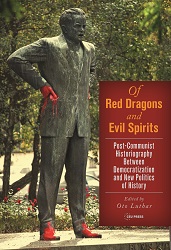Equalizing Jesus’s, Jewish, and Croat Suffering—Post-Socialist Politics of History in Croatia
Equalizing Jesus’s, Jewish, and Croat Suffering—Post-Socialist Politics of History in Croatia
Author(s): Ljiljana Radonić
Subject(s): Transformation Period (1990 - 2010), Present Times (2010 - today), Post-Communist Transformation
Published by: Central European University Press
Keywords: post-communism;Croatia;
Summary/Abstract: World War II was the founding myth both for socialist Yugoslavia, based on the narrative of the supra-national partisan struggle, and for post-socialist Croatia, due to President Franjo Tuđman’s idea that both partisans and Ustasha had fought for the Croatian cause, albeit in different ways. How did this strong role of politics of history impact professional historiography and vice versa, what influence did the latter have? Does it make sense at all to speak of a Croatian historiography in socialist Yugoslavia—were there fields free of influence from socialist hegemonic narrative? This chapter argues that this is true for the conservative historiography before the 1960s, but also for the two currents that developed in this period: There was a growing tension between distinguished medieval studies and historians like Mirjana Gross, who established contacts with international experts, oriented themselves on new Western methodology, and promoted approaches of the Annales School on the one hand, and nationalist historians whose engagement seemed limited to verbal exchange about contemporary history with their Serbian counterparts on the other hand. This last current, represented by the later Croatian president Franjo Tuđman, became dominant after Croatia’s independence in 1991.
- Page Range: 33-57
- Page Count: 25
- Publication Year: 2017
- Language: English
- Content File-PDF

